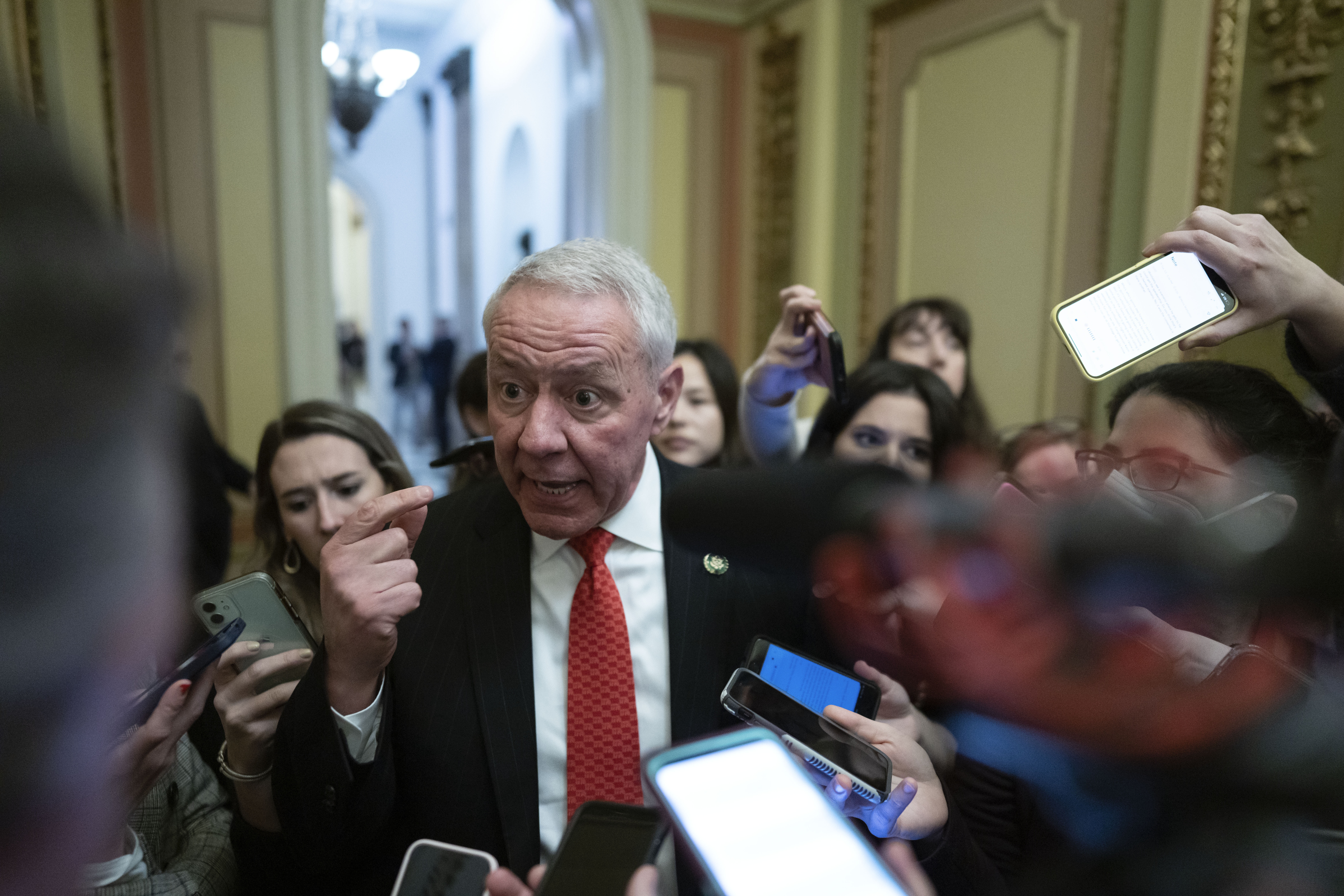GOP-er’s crusade against Big Tech hits a wall
Republican Congressman Ken Buck is “laying the groundwork” for a future fight against tech monopolies, but he acknowledges that won’t happen this Congress.


The House Republican who spearheaded last year’s bipartisan crusade to rein in the market power of large tech companies said GOP leadership has no intention of taking up his bills — but he insists the fight is not dead.
“The Big Tech antitrust issues will not move forward in this Congress,” Colorado Rep. Ken Buck said in an interview on the POLITICO Tech podcast. “And so even though I'm a champion, it's behind the scenes.”
“It's talking to new members. It's really laying the groundwork for the future,” he continued. “The best way to lead on this issue is to make people aware, make members aware, of what's going on and step back and let them draw their own conclusions.”
Buck formed an unlikely alliance with former Democratic Rep. David Cicilline, the then-chair of the House antitrust subcommittee, to advance a series of bills through the Judiciary Committee in 2021 that would have curtailed the control Amazon, Meta, Apple and Google have over online markets.
But political wrangling in the full House doomed their biggest bills. While a few bills ultimately went on to be signed by the president, including one that increased merger filing fees, those that would have forced the biggest changes to tech companies’ business models failed to become law.
Buck’s effort took another hit after Republicans took control of the House this year and he was passed over for chair of the House antitrust subcommittee in favor of Kentucky Rep. Thomas Massie. Then Cicilline left office in May to lead the Rhode Island Foundation.
The House Judiciary Committee under Chair Jim Jordan has focused its attention instead on an investigation into accusations that Meta, Google, Apple, Microsoft and Amazon have conspired with the Biden administration to censor conservatives.
Buck said Jordan’s investigation only bolsters the need for antitrust legislation — he just can’t convince Jordan to take that view.
“The more that Jim Jordan criticizes the speech, content moderation or censorship by these big companies, the more I feel like he's making my argument that we need competition to be able to address the issue,” Buck said.
“I want to be a champion, but I have to be realistic,” Buck said. “There are a lot of issues that I can focus on at this point, and I'm focused on those issues where I can develop bipartisan support.”
In June, Buck introduced legislation with California Democratic Reps. Ted Lieu and Anna Eshoo to establish a commission to recommend steps the government should take to regulate artificial intelligence, including the possible formation of a new federal agency.
Buck insists the proposal is not an attempt to defer taking more meaningful action on AI. But, he said, designating a commission to focus on the issue will help it get more attention from lawmakers who are otherwise juggling more urgent policy issues and partisan fights over investigations into former President Donald Trump and Hunter Biden.
“It's important that we get people together that have the time and focus to address the issues in a thoughtful way,” he said.
Annie Rees contributed to this report.
To listen to the interview with Buck and other tech leaders, subscribe to our new daily POLITICO Tech podcast.












